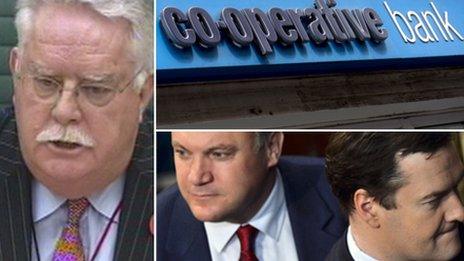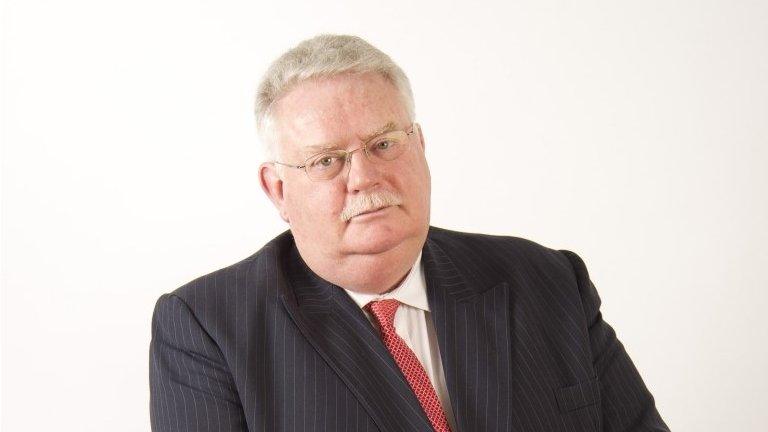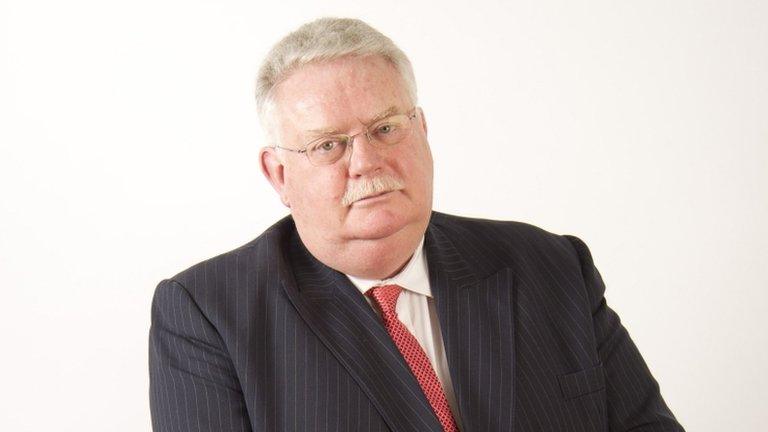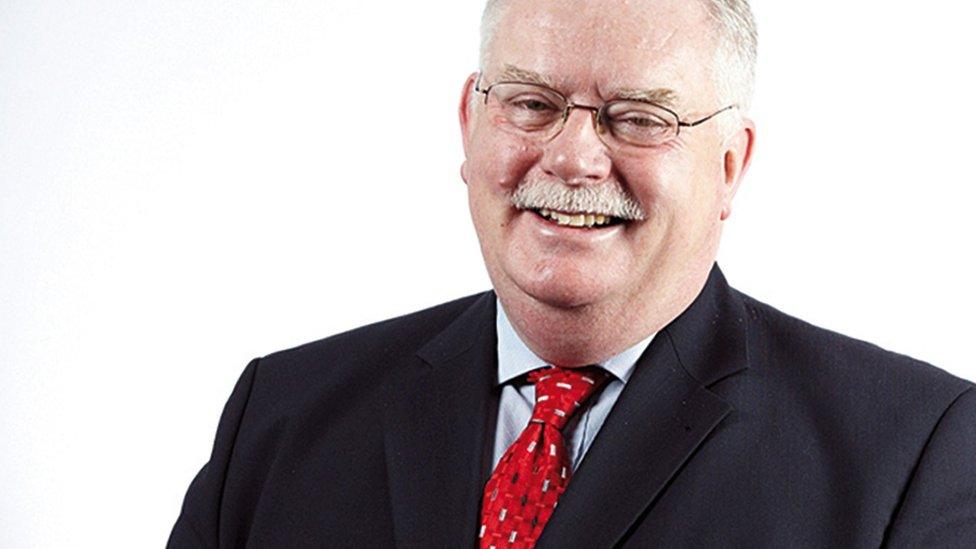Parties continue row over Paul Flowers 'smears'
- Published

The Conservatives have drawn attention to senior Labour figures' links with the Co-op in the wake of allegations against ex-chairman Paul Flowers
The Conservatives have been accused of a "return to the nasty party" as the row continues over the former Co-op Bank boss and his links to Labour.
Paul Flowers was arrested last week after being filmed allegedly handing over money for cocaine.
The shadow home secretary said there had been a "real deterioration" in the politics pursued by the Tories.
Conservative party chairman Grant Shapps said the scandal raised questions for Labour.
Mr Shapps told BBC1's Sunday Politics that there were "conflicting reports" about how much the Labour leadership knew about Mr Flowers' past, which included him standing down as a Labour councillor when "adult content" was found on his computer.
Labour has said that Mr Miliband and shadow chancellor Ed Balls did not know why Mr Flowers had quit.
The Co-operative Party is joined with Labour, with many opposition MPs representing both parties.
Shadow home secretary Yvette Cooper : "It is a return to the nasty party"
Mr Shapps said: "Labour, the party, certainly knew about these very difficult circumstances in which he resigned as a councillor. That's a thing the Labour Party knew about.
"If Ed Miliband didn't know about that, then why didn't he know about that?"
Shadow home secretary Yvette Cooper said previous prime ministers would not have linked the revelations to Labour in the way David Cameron has.
"What we've seen recently is a real deterioration in the nature of the politics that the Tory party is pursuing," she told the BBC's Andrew Marr programme.
"It is a return to the nasty party."
Ms Cooper described allegations of expenses and drugs misuse as "completely shocking".
Grant Shapps: "To be accused of smears for asking important questions is ludicrous"
But she said Labour's connection to the Co-op had "nothing to do with Mr Flowers and it is just smear and the politics of the gutter for the Tory party to keep pushing this".
Until 2011 Mr Flowers was a Labour councillor in Bradford and reportedly attempted to get selected to fight one its parliamentary seats.
Ms Cooper said the allegations that have subsequently been made against the 63-year-old were separate from the "big questions" about why problems with the Co-op Bank's finances were not spotted earlier.
The "nasty party" phrase was first coined by Home Secretary Theresa May while the Conservatives were in opposition to illustrate how she felt the Tories needed to change.
But Mr Shapps told the BBC's Sunday Politics programme: "How this bank ended up being led literally off the rails, I think these are very important questions that need answering."
"To be accused of smears for asking the questions is ludicrous."
The party has highlighted financial links between the Co-op and Labour, including loans and a £50,000 donation to Ed Balls's office.
'On Labour's watch'
Writing in the Independent on Sunday, external, Labour leader Ed Miliband accused Mr Cameron of hitting "a new low" by using the "gross errors of one man... to impugn the integrity of of the entire Labour movement".
The prime minister has suggested Labour knew of concerns about Mr Flowers but failed to act on them.
Last week George Osborne announced an inquiry into how the suspended Methodist minister was allowed to reach such heights at the bank.
But Education Secretary Michael Gove insisted the opposition had questions to answer.
"The difficulty that Labour has is they were the people responsible for appointing [or] allowing Paul Flowers to be appointed on their watch," he told the Marr programme.
Meanwhile, Martin Wheatley, who heads the Financial Conduct Authority, said Mr Flowers would not have been approved to run a bank under the new regulatory regime.
"Today it would be different," he told the BBC's Sunday Politics programme.
"He was challenged. We said 'actually you don't have the right experience'. But at the time we wouldn't have opposed the appointment."
- Published23 November 2013

- Published22 November 2013

- Published7 May 2014
